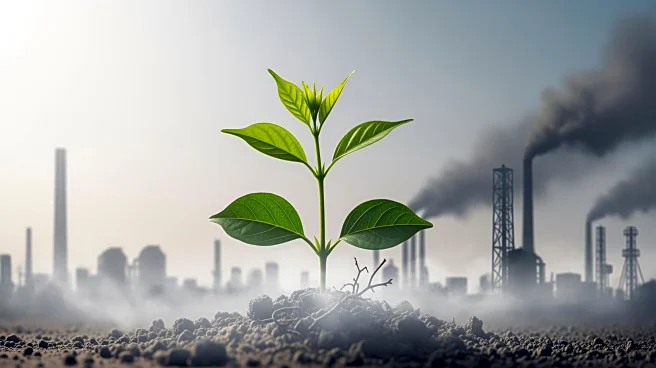What's Happening?
Hundreds of residents in Delhi, India, took to the streets to protest against the severe air pollution affecting the city. The protest, which included people of all ages, was held near India Gate, a significant landmark, despite the lack of official permission.
The demonstrators, some wearing gas masks, called for the government to declare a health emergency due to the hazardous air quality levels. The air quality in Delhi has been deteriorating, with the Air Quality Index (AQI) reaching between 300 and 400, far exceeding the World Health Organization's acceptable limits. The situation worsens in winter due to crop stubble burning in neighboring states and low wind speeds that trap pollutants. The protest highlighted the public's frustration with the government's response, which includes measures like water sprinkling and anti-smog guns, but has not yet implemented stricter actions under the Graded Response Action Plan (GRAP).
Why It's Important?
The protest underscores the growing public concern over air pollution in Delhi, which poses significant health risks to its residents. The high levels of PM 2.5 particles in the air can lead to respiratory issues and other health problems, affecting the quality of life and life expectancy. The government's current measures have been criticized as insufficient, and the delay in implementing stricter controls under GRAP III could exacerbate the situation. This issue not only impacts public health but also has economic implications, as poor air quality can deter tourism and affect productivity. The protest reflects a demand for more effective and immediate government action to address the environmental crisis.
What's Next?
The Delhi government may face increased pressure to implement stricter pollution control measures, such as banning non-essential construction activities and diesel vehicles, as outlined in GRAP III. The public's demand for a health emergency declaration could lead to more significant policy changes or interventions. Environmental activists and opposition leaders are likely to continue advocating for more robust actions, potentially influencing future government strategies. The situation may also prompt further public demonstrations if the air quality does not improve.















